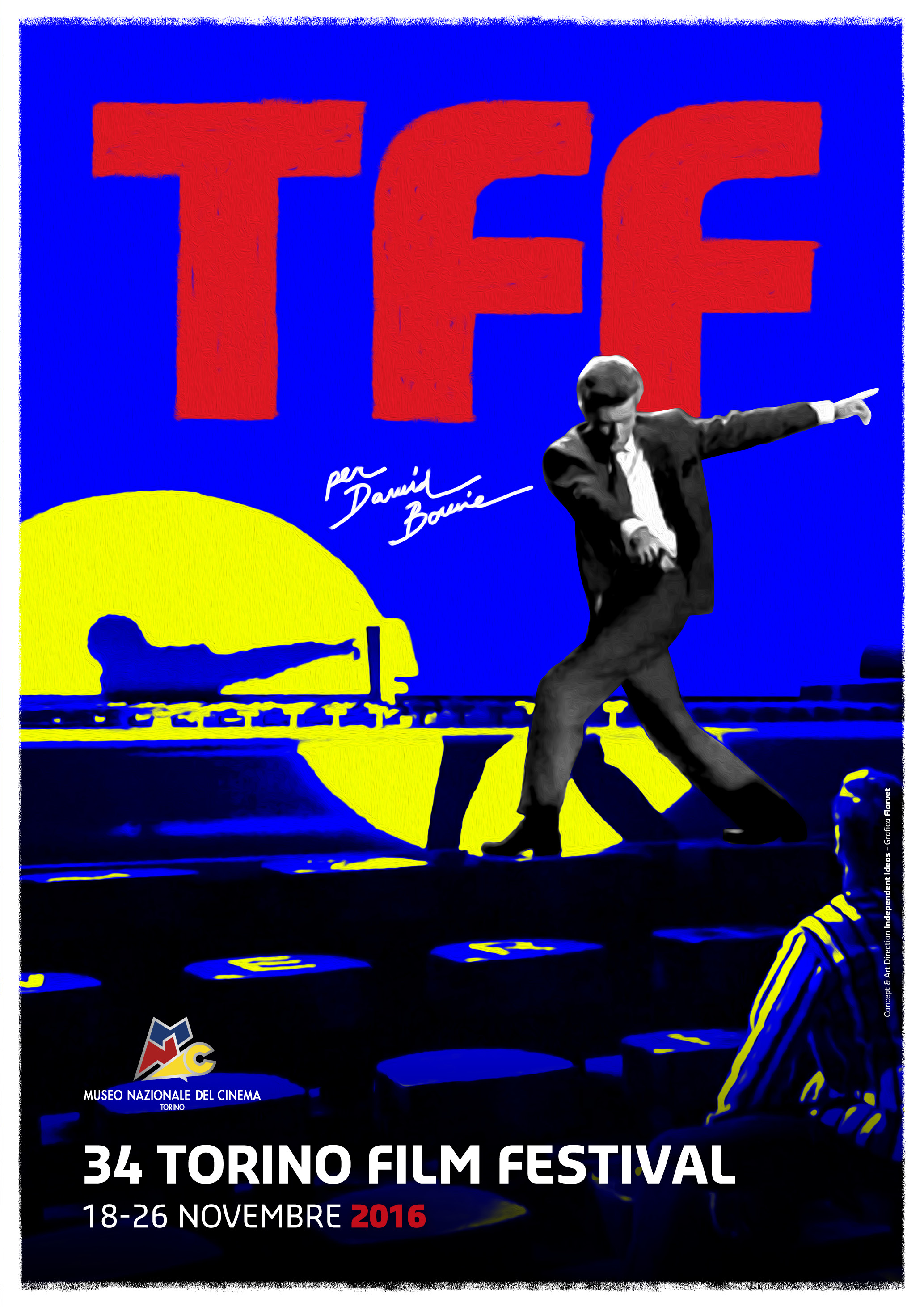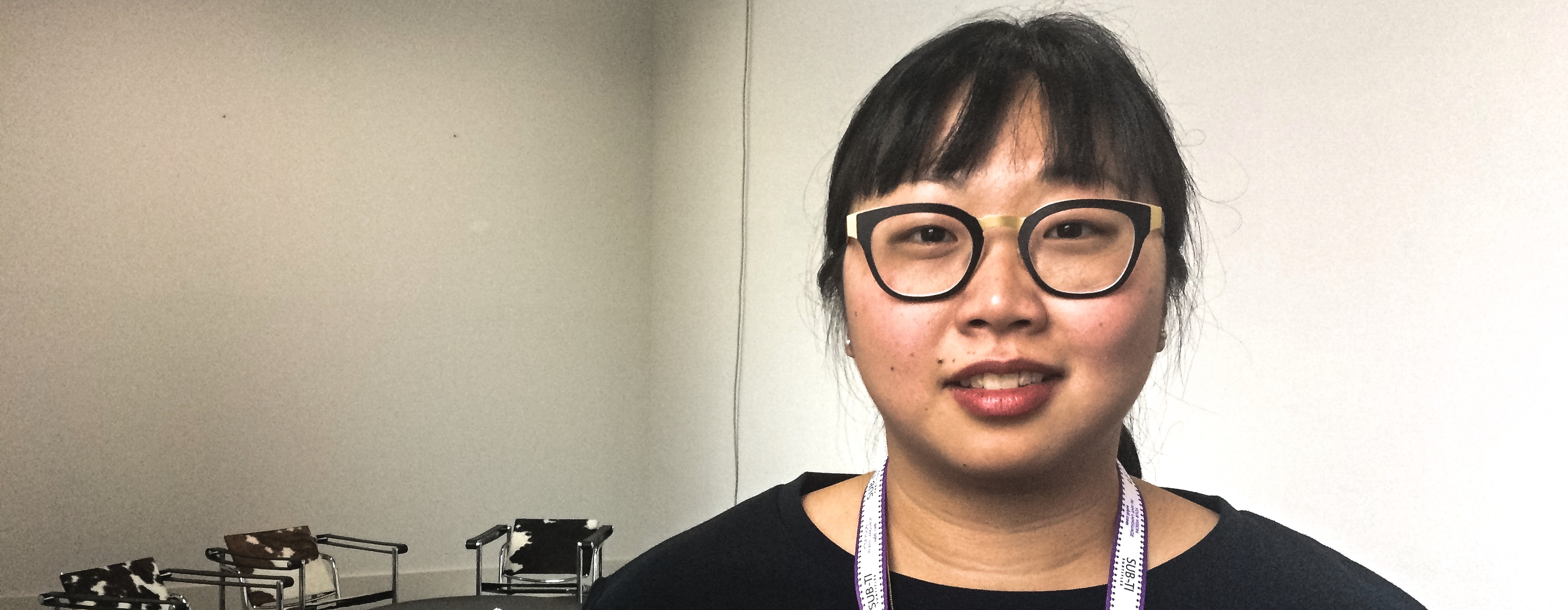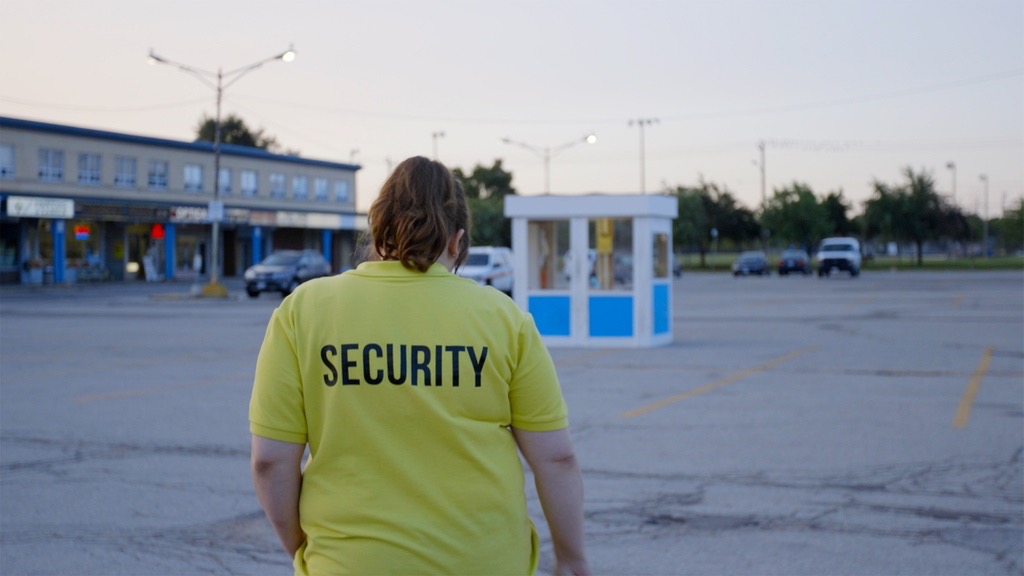Wexford Plaza

Dal Canada Joyce Wong, autrice e regista di Wexford Plaza, una delicata commedia che racconta un incontro frainteso tra una ragazza sovrappeso e un ragazzo alla perenne ricerca di lavoro. Joyce, di origine cinese e cresciuta in Canada, ci racconta le difficoltà e le soddisfazioni della scrittura del suo primo lungometraggio.
La traduzione in italiano la trovate qui: wexford-plaza_ita
As first question I ask you a pitch of the film, what’s the story of Wexford Plaza?
It’s a film about a lonely female security guard who works at this street mall in the outskirts of a big city. She is friendless and lonely, but she encounter this bartender at the street mall, who she has a misunderstood sexual encounter with, which leads both their lives to a spiral.
What was the starting element of the story? Was the character or the theme?
I think it was the mall, and also the security guard. I had this image of this female, sitting in a boot and working at night. When I was in high school I had lot of friends doing jobs like this and they were all very similar: in the sense they were lonely and purposeless. So this was a chance to explain that sense of malaise and loneliness and sadness and desperation. Because everyone I found when I did film school or in networking, you know… there’s a kind of this judgment: why aren’t you like that? Or these people making bad decisions… And it’s just because there’s a confusion, there’s a lack of context. I wanted to be able to explain their story, through this imagery of the street mall and through this pointless job.
Your characters are all young adult, as in their 20s, and this sense of uncertainty is very interesting. In Italy this issue of finding a job and be satisfied with it both economically and personally is very strong especially for young generations. Was your intention to make a point about this generational issue?
I think there are two things at work: there’s this generational youth that feels like they are missing out on something, they don’t have the hope for something. And then there is also kind of these forces that are telling them: get rich, get rich quick! I find that a lot of youths nowadays are succumbing to this “get rich quick”, to this idea, rather than work with what they have. Like Danny’s character, the young man: rather than trying to work with what he has, he tries to sell makeup products, because it’s like a really quick fix to a situation, and it ends up very odd. I think the message I was trying to tell is that it’s not like one or two people are making mistakes, it’s the context and the system that they are living under, wright? And that is the thing that is crumbling and need to be fixed. Not necessarily how hard these people are supposed to be trying and what they are supposed to do.
That’s your first feature length film. How was the writhing process, how long did it take, how many draft did you write?
I wrote the script myself, alone, and I made many many drafts… because it’s my first time as a feature writer and you know… you don’t understand where all the beats go, so you are trying to figure out, how it’s supposed to feel. At first I was trying to write the all thing down, as a normal three acts structure… and I remember reviewing the draft and I was like: Oh it’s not really explaining. I heard a sense of confusion. And that core issue that she is doing the thing she is doing because of the lack of context… that’s why I decided to separate stories, and tell her story first and then the story of the young man. That structure didn’t start at the beginning. When I first wrote it, I wrote it like back and forth, back and forth, going from one character to another. Then I realized that I needed people to be as confused as she was. And so that’s why I splitted it. I didn’t want do clichés either, I wanted to show something very specific: her black context and then giving context, instead of her story, his story and then a third person story to make it up.
At what point did you develop this split structure? Was already in a treatment phase or in the script? And how long took the writing?
At first I wrote a ten pages treatment, but the story was quite different. But the feeling and the tone where the same, the female character was always the same. The secondary characters weren’t this important in the initial drafts. From treatment to final script took two and a half years.
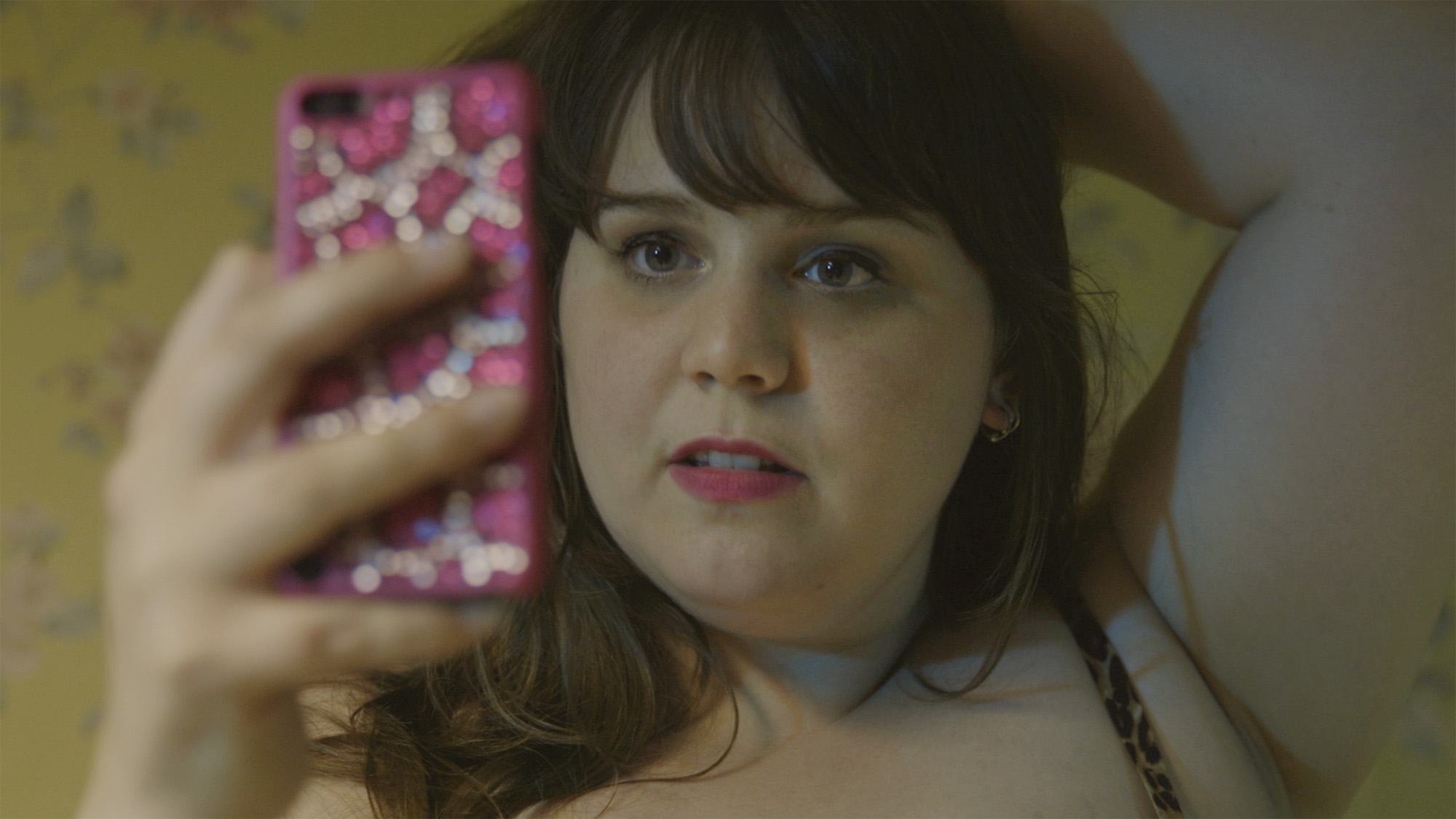
At what point did you find a producer?
First producer came on when we were maybe at the fifth draft of script. Because you know, I didn’t wan to show it until I was happy with the script. Then the second producer came on during the postproduction process.
Was it hard going through the writing process all by yourself?
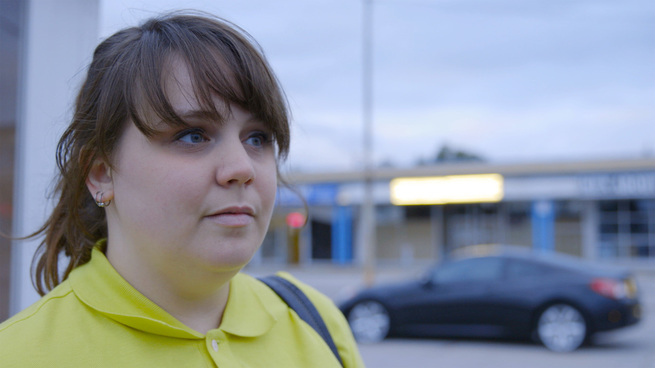
No, I liked it. Because you imagine the characters in your head and they keep you company. It’s fun when you are at the midpoint and you ask: “Oh what are they gonna do?” Off course as a writer you know what they are gonna do, but all the small things they do in the scene it just kind of come to you. So in the hard and lonely writing process the characters kept me company. In order for you to write them properly, they have to be so lifelike, they almost have to be like they are real, so…
How is your writing technique, do you have a method?
Well, what I do is writing everything, then I go back and rewrite… Of course the first draft took a while, but I try not to break it up too much, so every time I go through the all thing, so I have a sense of where the scenes are. I like working in a very intense way, writing a lot and then maybe go back, but I’m not like staying a longtime on just one scene.
As you are also a director, is your writing very specific on the visual aspects of the scene?
I write about how it feels. I never write too much of the photography in, but the characters’ feeling, I put it in.
The main female character is fatty girl, did you have in mind this trait while writing and at what point of the production did you cast the actress?
We knew we wanted someone like her, but we couldn’t find her at the beginning. It took us a really long time to find her, but she is the perfect one. I feel very special that we are able to dream up someone like her and then actually find her. For the male character… I kind of had him in mind and when we confirmed him I just added some elements of his characters to fit. In the male character there is like a desperation thing he does, he is very desperate. In the scenes he’s always starting on the floor, you know? So that wasn’t something that was inherently in the character at first, I wanted kind of a lost boy, but the level of desperation that he brought in to it, that was very original. So I readjusted some of the scenes to fit him a little bit better.
How did you worked with the actors, did you have any improvisation on the set?
I did a lot of rehearsals before shooting. And some of the elements from the rehearsals I wrote in. And in some of the dialogue there was improvisation. But not for the plot point, because I like to know where the characters are going. I did all the work on the dialogues with the actors during the rehearsals. The thing is that we had a very low budget, so we didn’t have too much time to experiment on the set. We had three weeks for shooting, which is 15 days.
Not so much time… And how long took the rehearsals?
We did a lot, like a month. Not everyday, twice a week for a month.
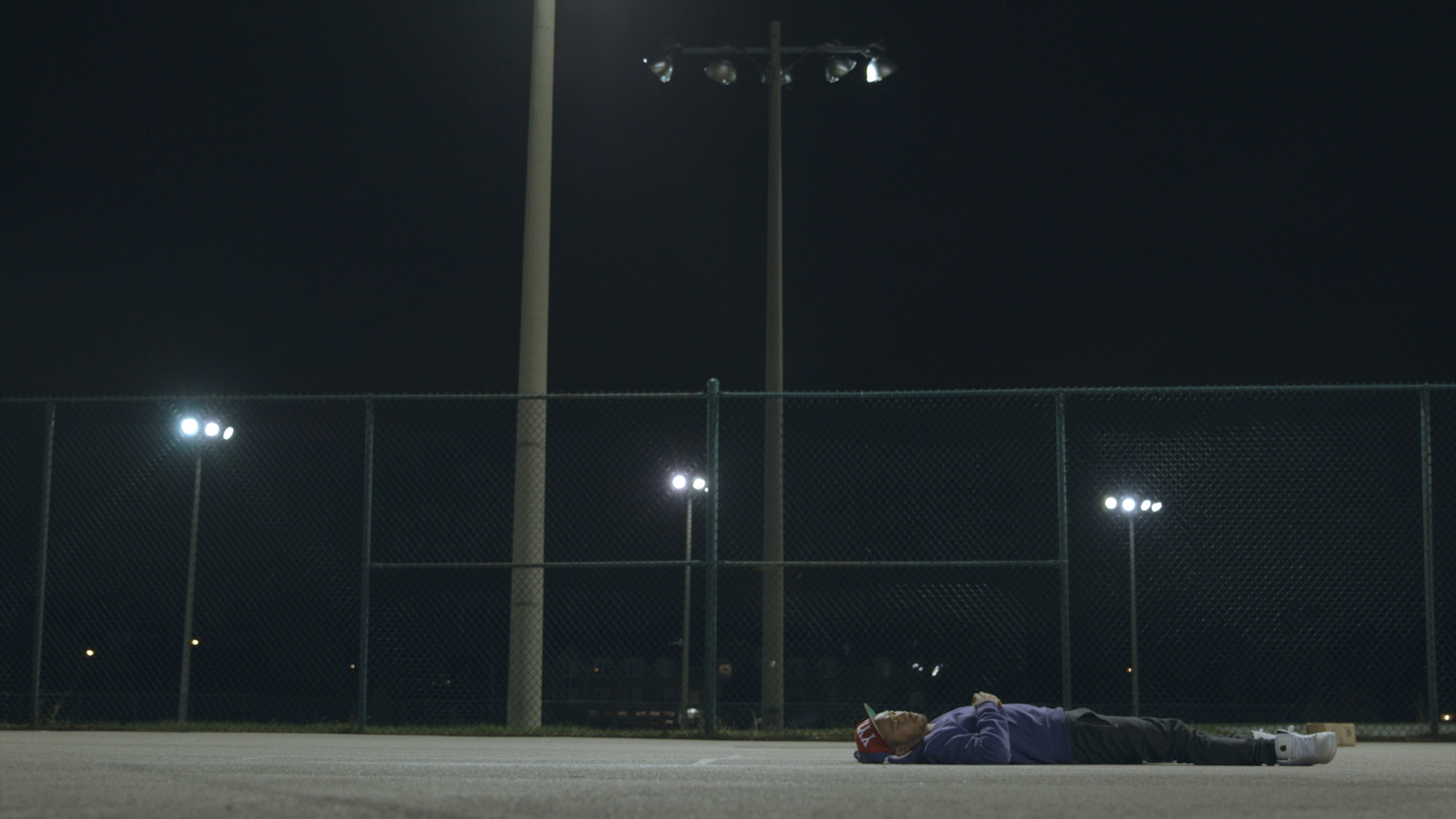
What is your background and your studies? How did you come to cinema?
I went to film school in Toronto, and there I shot a couple of shorts. When I was growing up, my parents were very strict, and they didn’t let me go out by myself, so the only way I could explore the world was through movies and books. So I just fell in love with the stories. The stories of novels and movies opened my mind. Also my family didn’t speak English that well, they came from Hong Kong to Canada. So I didn’t understand some of the cultural things, but I would watched on tv how they say stuff and do stuff and replicate that… so I felt that I wanted to tell stories to, cause I was effected so much by them.
What are your references, both in cinema and literature?
I really like Tsai Ming-liang, for his subtle storytelling and the way he frames, there is a irony also in his works. Then I like Milos Forman’s early works… In terms of books I love Kazuo Ishiguro, Remains of the day.
You named two Asian authors, do your Hong Kong roots have an influence in your work?
I think it gives me this outsider feeling, you know? It’s a good and a bad thing: I felt a bit lonely growing up, because was more difficult to connect, but it also kind of shaped my voice. I guess that’s why I prefer lonely characters.

